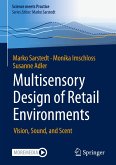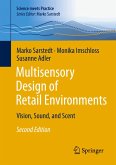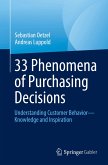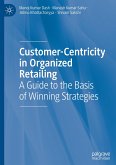This book describes how an optimal store design can contribute to the well-being of the customer and to differentiation from online retail. From an academic and practical perspective, with contributions from renowned academics and companies, it shows how a coherent store design can be created in harmony with the retail brand.
The central challenge here is the conscious orchestration of the diverse sensory stimuli. How can the many sources of stimuli be controlled? Which shelf shape goes with which light, colour and sound? Dealing with the variety of stimuli in a store environment can quickly become complex and incongruence can have a decisive negative impact on the well-being of customers. A customer-centric store environment therefore focuses on the well-being of people.
Renowned scientists and traders show the state of the science on these issues and give valuable suggestions for the trade. With best practice examples and valuable suggestions for practical implementation
The central challenge here is the conscious orchestration of the diverse sensory stimuli. How can the many sources of stimuli be controlled? Which shelf shape goes with which light, colour and sound? Dealing with the variety of stimuli in a store environment can quickly become complex and incongruence can have a decisive negative impact on the well-being of customers. A customer-centric store environment therefore focuses on the well-being of people.
Renowned scientists and traders show the state of the science on these issues and give valuable suggestions for the trade. With best practice examples and valuable suggestions for practical implementation








